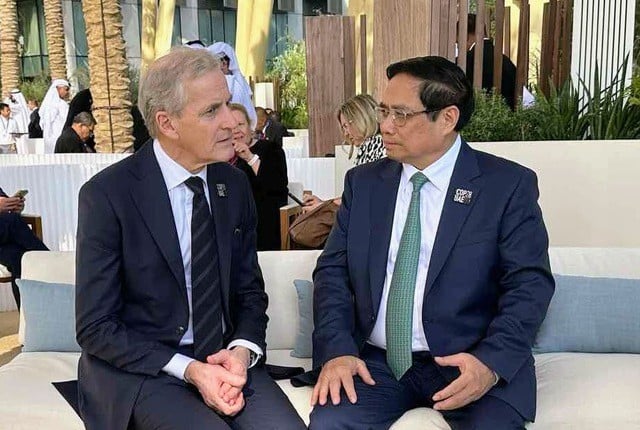 |
| Prime Minister Pham Minh Chinh met with Norwegian Prime Minister Jonas Gahr Store on the sidelines of the COP28 Conference in the UAE on December 1, 2023. (Source: VGP) |
Dear Ambassador, Vietnam and Norway are trusted partners in many fields, including green economy and green energy. From the perspective of Vietnam-Norway relations, what can you say about the results of the recent United Nations (UN) Climate Change Conference (COP28) in Dubai?
First of all, I would like to congratulate Vietnam on announcing the Mobilization Plan for the Just Energy Transition Partnership (JETP) at COP28 in Dubai. This is an important step towards realising the commitments under this important document. It is also a strong demonstration of Vietnam’s commitment and bold actions towards its net zero emissions commitment. Norway is committed to working closely with the International Partnership Group (IPG) of JETP and the Vietnamese government to promote this programme.
| “I believe that ocean-based climate solutions will be one of the key areas that will dominate our bilateral cooperation.” |
At COP28, Norwegian Prime Minister Jonas Gahr Støre met with Prime Minister Pham Minh Chinh. The Norwegian Prime Minister highly appreciated the recent visit to Norway by Vice President Vo Thi Anh Xuan, considering it a new impetus to promote cooperation between the two countries.
Our two Prime Ministers discussed a number of issues and agreed to strengthen relations between the two countries in a number of areas such as renewable energy development, especially offshore wind power, green economy and trade promotion.
Vietnam and Norway both have long coastlines and great potential for developing the green economy. I believe that ocean-based climate solutions will be an important part of our bilateral cooperation. Norway will share its experience in the green agenda and in building an institutional framework for offshore wind, along with investments and high-tech from Norwegian companies.
The two countries have been working closely together in these areas. We are supporting the Vietnamese Government in developing marine spatial planning by sharing Norway’s experience in integrated ocean management and engaging the private sector. Relevant agencies from both countries have been discussing this in detail.
Norway's leading energy group Equinor has also recently revised its Memorandum of Understanding with Vietnam Oil and Gas Group PetroVietnam to enhance cooperation in the fields of offshore wind power, carbon capture and storage, and low-emission solutions.
I am delighted to know that Mr. Anders Opedal, CEO of Equinor, and the CEO of PetroVietnam met with Prime Minister Pham Minh Chinh within the framework of COP28. Mr. Anders Opedal reaffirmed to the Prime Minister Equinor's readiness and determination to step up close cooperation with PetroVietnam to develop Vietnam's offshore wind power industry.
COP28 is one of the biggest COPs ever. And now we need to focus on action to deliver on our climate commitments. As the Norwegian Prime Minister said, “we are now between the Paris Agreement and 2030. Let’s work together to ensure COP28 ends with a pathway to 1.5 and climate resilience. There is no time to lose.”
 |
| Norwegian Ambassador Hilde Solbakken shares with reporters about Vietnam's green transformation efforts. (Photo: KT) |
Vietnam has been actively implementing many policies on energy transition, including policies that prioritize the use of renewable energy sources. How do you evaluate these efforts of Vietnam?
Vietnam is very active in implementing its commitments towards its green transition and net zero targets. Norway welcomes Vietnam’s commitment to achieve net zero emissions by 2050, as well as the JETP agreement that Vietnam signed with the G7 countries, Norway and Denmark last year. Efforts to combat climate change and achieve a just energy transition can only be achieved through strong and effective partnerships.
Let me review the results that Vietnam has achieved over the past year: The Vietnamese Government has approved the National Power Development Plan, abbreviated as Power Plan VIII, which sets out a roadmap for Vietnam's transition to green energy.
Vietnam has also established a JETP Secretariat. This issue has been legalized and currently many ministries are considering action plans and policies to create a favorable legal environment for energy transition implementation. And recently, the Resource Mobilization Plan for JETP was announced by Prime Minister Pham Minh Chinh at COP28.
Vietnam has prepared very well for COP28. The resource mobilization plan is an important first step in implementing JETP. In the Joint Press Release of the International Partnership Group (IDG), Norwegian Prime Minister Jonas Gahr Støre said: “We welcome the completion of Vietnam’s JETP Resource Mobilization Plan. Now we can focus on implementation. Norway is ready to contribute with investments and share its experience and expertise.”
There are currently hundreds of carbon credit projects under development in Vietnam, but the carbon market in Vietnam is not yet fully developed. What do you think can be done to speed up this process?
First of all, I would like to congratulate the efforts of Vietnam, its agencies and stakeholders in creating carbon credits. Carbon credits mean reducing emissions and creating value. This is a good sign because when the market has demand, it will be the driving force for development and growth.
Carbon markets are a powerful tool that more than 70 countries around the world are using to implement the provisions of the Paris Agreement on climate change. Carbon markets are complex, but to understand them, you can think of them like a stock market. To ensure a transparent, efficient market that accurately reflects the actual level of emissions reductions, we need a suitable legal framework that is closely and continuously monitored and supervised.
We are pleased to see that Vietnam has a roadmap to promote the development of a complete carbon market by 2028. A step-by-step approach is the smart way to do it. Starting with focusing on building regulations and policies as a foundation for the market to operate, then forming and operating a pilot Vietnam carbon credit trading floor and moving towards officially operating the carbon credit trading floor by 2028. This is also the path to developing the carbon market of many countries in the world.
Vietnam has favorable conditions to develop a carbon market. This is not a new issue for you. In fact, carbon credits have appeared in Vietnam for many years, when Vietnam was one of the countries most strongly implementing Clean Development Mechanism (CDM) projects. At the same time, Vietnam has implemented the Payment for Forest Environmental Services mechanism for many years.
| In Norway, in addition to carbon credits, we also use another financial instrument called fossil fuel tax. For example, when you buy a new car in Norway, the tax you pay depends on whether it is powered by diesel or electricity. For electric cars, the tax is very low or even zero, while diesel/petrol cars pay very high taxes. |
It is also important to emphasize that the carbon market is one of the necessary policy instruments to promote the green transition. In Norway, in addition to carbon credits, we also use another financial instrument: fossil fuel taxes. For example, when you buy a new car in Norway, the tax you pay depends on whether it is powered by diesel or electricity. For electric cars, the tax is very low or even zero, while diesel/petrol cars pay very high taxes.
Over the years, Vietnam has played a key role as a driving force for renewable energy growth in the ASEAN region. What do you think the Vietnamese Government needs to do to achieve its goal of carbon neutrality by 2050?
First of all, climate change is a global challenge, and many countries around the world, including Norway, are implementing their own green transition roadmaps. Each country will know best what its goals are and what is important in its own national context.
With its geographical advantages, Vietnam has great potential for developing and producing renewable energy. Its long coastline and abundant wind resources are good premises for developing offshore wind power in Vietnam, as well as making Vietnam a leading country in the region in renewable energy.
As one of the world's pioneers in renewable energy, Norway shares an important lesson that has ensured our success: Open and constructive dialogue between the Government, the private sector and stakeholders including NGOs.
Listening to the opinions of the people as well as the relevant organizations is extremely important to ensure the sustainability and longevity of policies, regulations as well as any investment in renewable energy. Hopefully, this experience can be useful for policy makers in Vietnam.
Vietnam has clearly identified the challenges ahead in this process. We appreciate your focus on strengthening the existing institutional framework, building new or amending regulations accordingly. This is an important basis for domestic and foreign investors to invest in renewable energy infrastructure. I think this is the right step.
At the end of 2023, can you share your feelings?
The year 2023 marks many important activities in the Norway-Vietnam bilateral relationship. Starting with the visit to Vietnam at the beginning of the year by Norwegian State Secretary Erling Rimestad and the 9th Deputy Ministerial-level Political Consultation between the two Ministries of Foreign Affairs of Vietnam and Norway, and at the end of the year is the official visit to Norway by Vice President Vo Thi Anh Xuan.
Among them, there were a series of working visits by agencies of the National Assembly and Government as well as businesses of the two countries, including the visit to Norway by the National Assembly's Committee for National Defense and Security, the Ministry of Agriculture and Rural Development, the Department of Sea and Islands of the Ministry of Natural Resources and Environment, the Vietnam Confederation of Commerce and Industry (VCCI), working trips to Vietnam by the Norwegian Directorate of Fisheries, the Norwegian Agency for Development Cooperation (NORAD) and famous Norwegian corporations such as Equinor, TOMRA...
I hope that in 2024 we will continue this momentum, and there will be many meaningful cooperation activities at many levels, in areas of mutual interest for peace and sustainable development of each country and the whole world.
Source








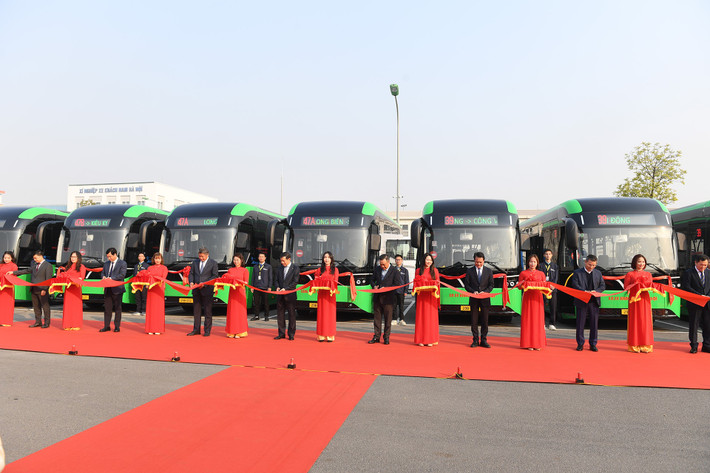









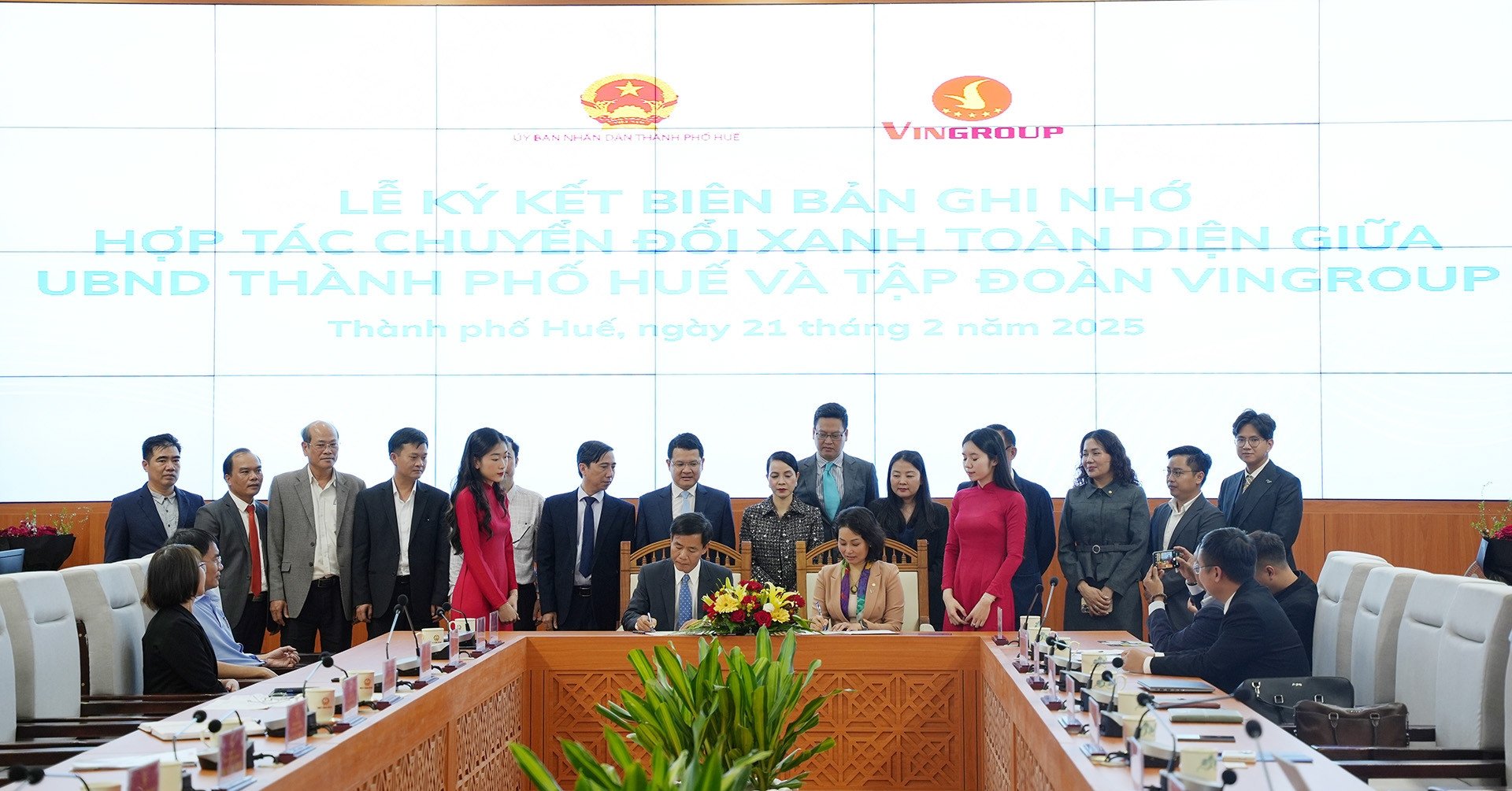



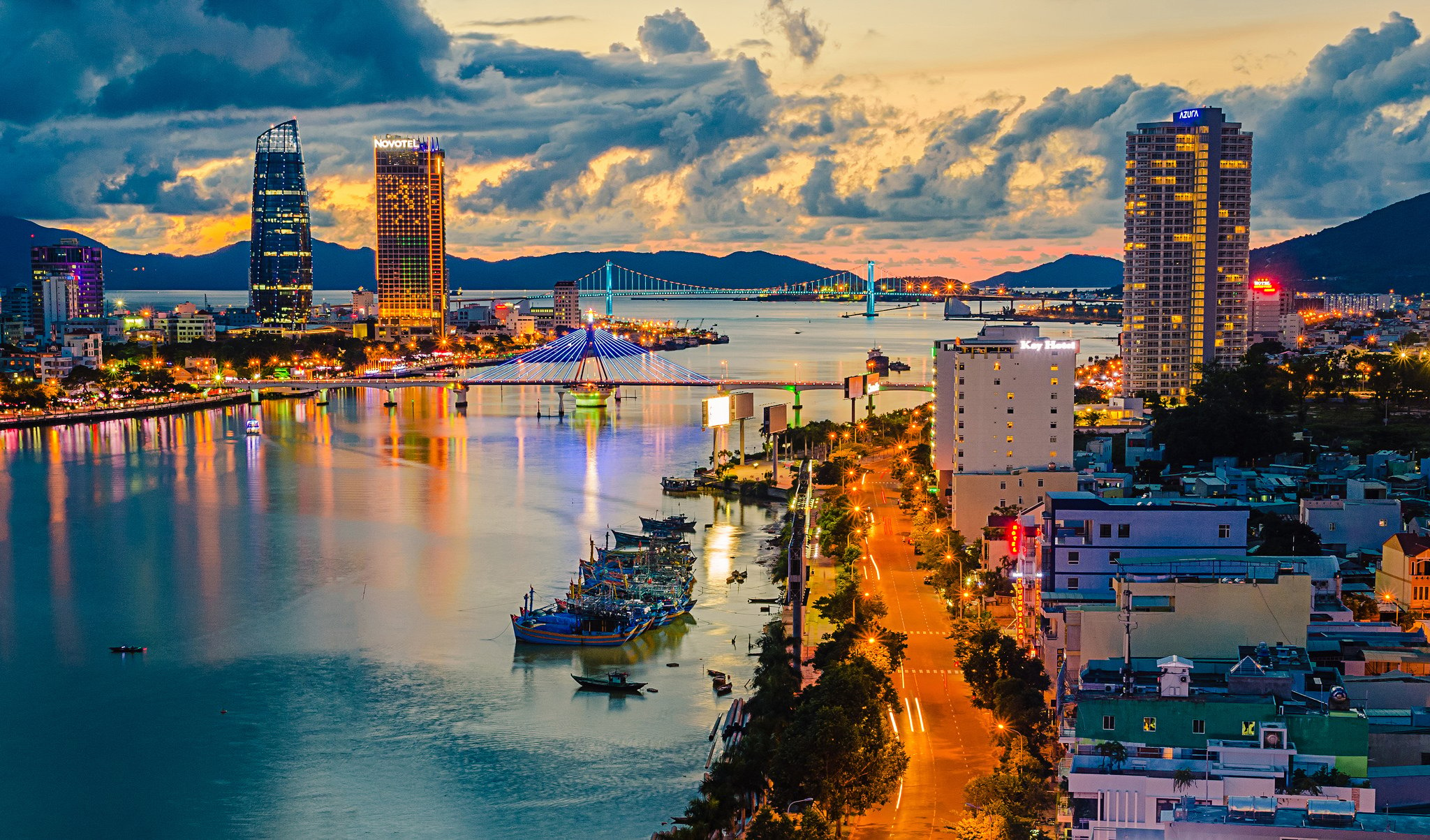

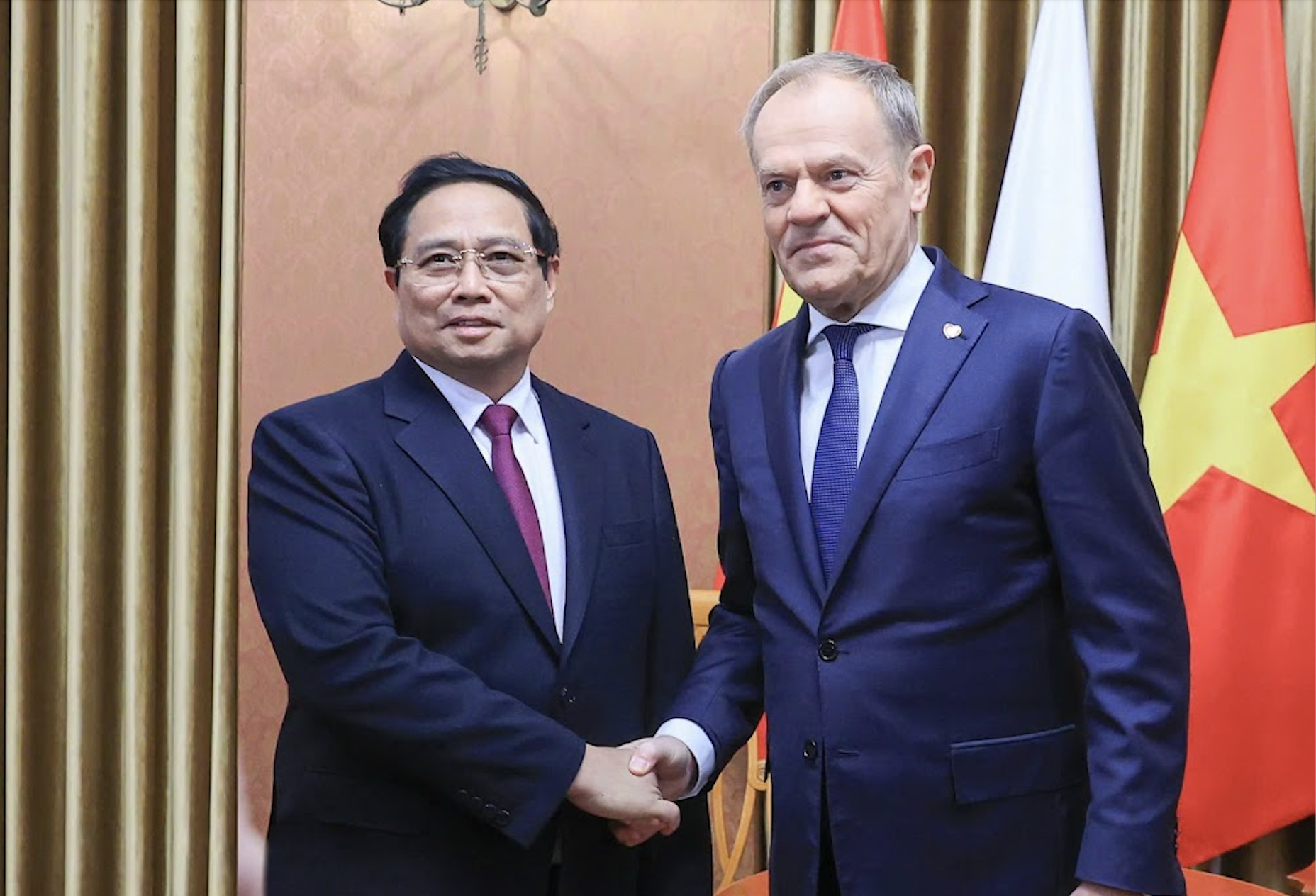









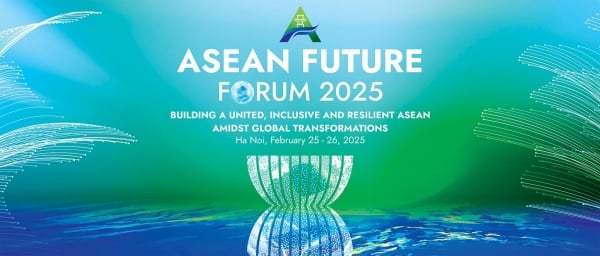











Comment (0)